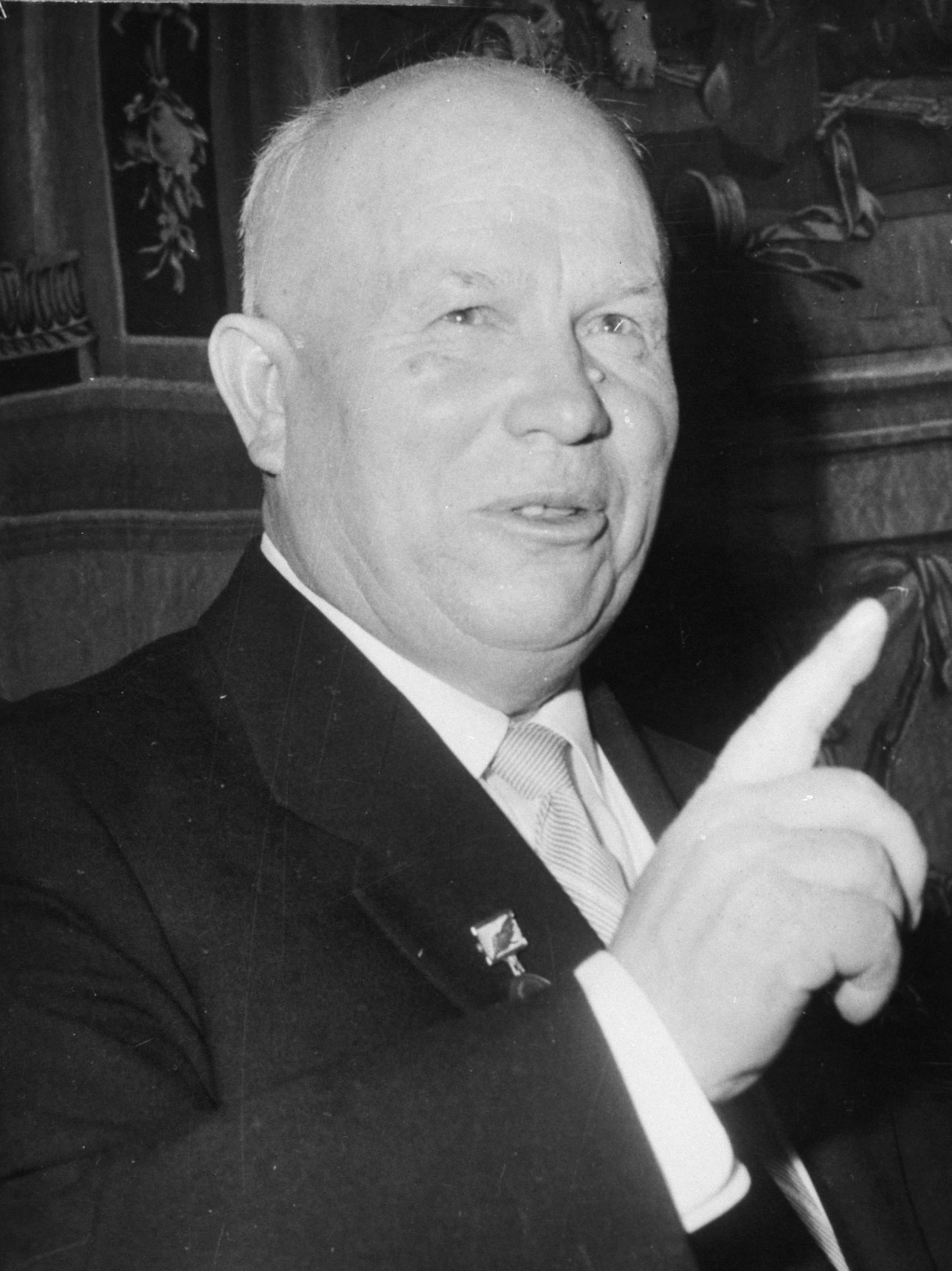Nikita Khrushchev
 Nikita Sergeyevich Khrushchev (– 11 September 1971) was the First Secretary of the Communist Party of the Soviet Union from 1953 to 1964 and the Chairman of the Council of Ministers (premier) from 1958 to 1964. As leader, he stunned the communist world by denouncing his predecessor Joseph Stalin and launching a campaign of de-Stalinization, and presided over the Cuban Missile Crisis in 1962.
Nikita Sergeyevich Khrushchev (– 11 September 1971) was the First Secretary of the Communist Party of the Soviet Union from 1953 to 1964 and the Chairman of the Council of Ministers (premier) from 1958 to 1964. As leader, he stunned the communist world by denouncing his predecessor Joseph Stalin and launching a campaign of de-Stalinization, and presided over the Cuban Missile Crisis in 1962.Khrushchev was born in a village in western Russia. He was employed as a metal worker during his youth and was a political commissar during the Russian Civil War. Under the sponsorship of Lazar Kaganovich, Khrushchev worked his way up the Soviet hierarchy. He originally supported Stalin's purges and approved thousands of arrests. In 1938, Stalin sent him to govern the Ukrainian SSR, and he continued the purges there. During the Great Patriotic War, Khrushchev was again a commissar, serving as an intermediary between Stalin and his generals. Khrushchev was present at the defense of Stalingrad, a fact he took great pride in. After the war, he returned to Ukraine before being recalled to Moscow as one of Stalin's close advisers.
On 5 March 1953, Stalin's death triggered a power struggle in which Khrushchev emerged victorious upon consolidating his authority as First Secretary of the party's Central Committee. On 25 February 1956, at the 20th Party Congress, he delivered the "Secret Speech", which denounced Stalin's purges and ushered in a less repressive era in the Soviet Union. His domestic policies, aimed at bettering the lives of ordinary citizens, were often ineffective, especially in agriculture. Hoping eventually to rely on missiles for national defense, Khrushchev ordered major cuts in conventional forces. Despite the cuts, Khrushchev's time in office saw the tensest years of the Cold War, culminating in the Cuban Missile Crisis in 1962.
As leader of the Soviet Union, Khrushchev enjoyed considerable popularity throughout the 1950s due to the successful launching of Sputnik and victorious outcomes in the Suez Crisis, the Syrian Crisis of 1957, and the 1960 U-2 incident. By the early 1960s, however, support for Khrushchev's leadership was significantly eroded by domestic policy failures and the prevailing perception that he had mishandled the Cuban Missile Crisis. Such developments emboldened his political rivals who quietly rose in strength and ultimately deposed him in October 1964. However, he did not suffer the deadly fate of the losers of previous Soviet power struggles and was pensioned off with an apartment in Moscow and a dacha in the countryside. His lengthy memoirs were smuggled to the West and published in part in 1970, and he died the next year in his dacha. Provided by Wikipedia
